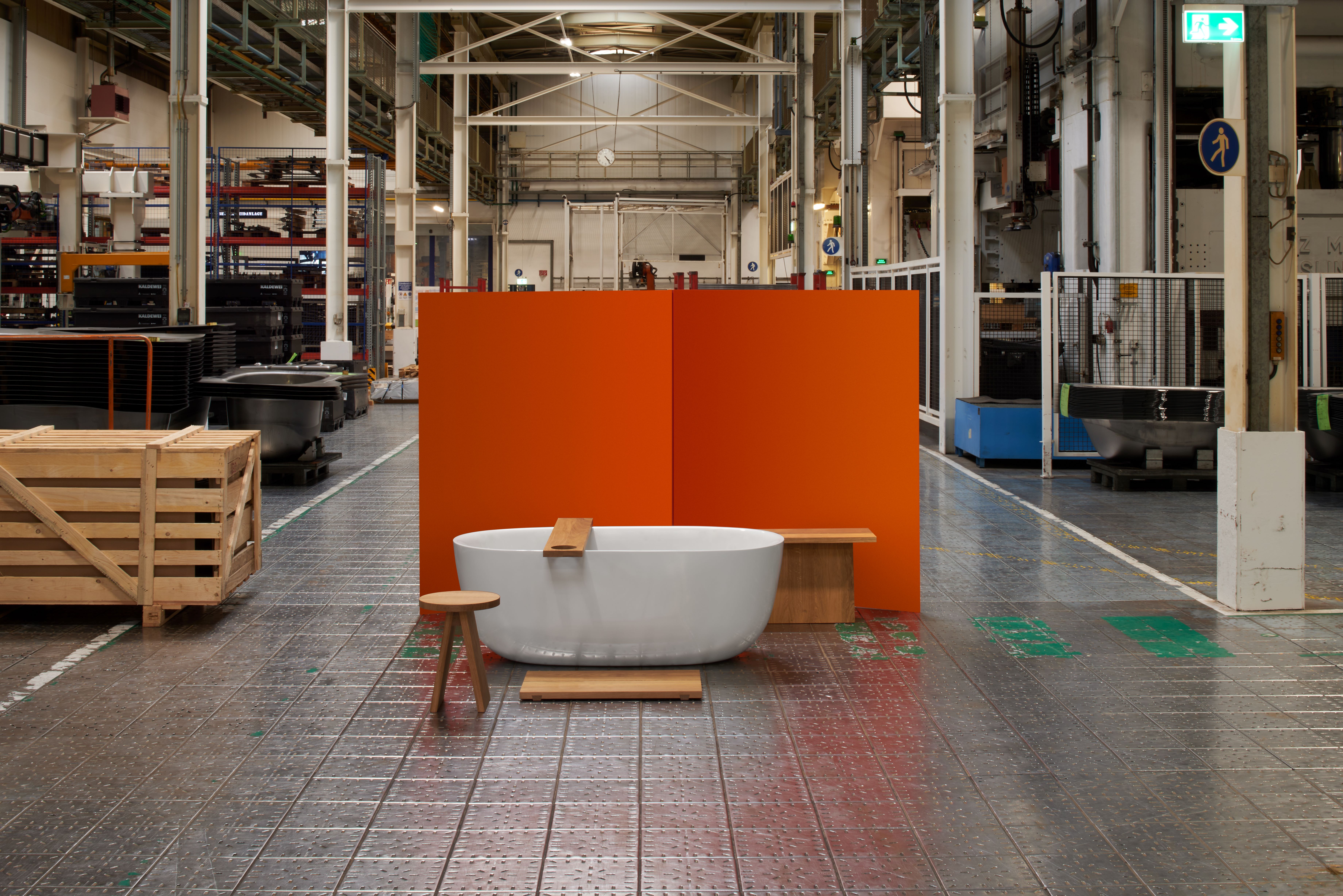
‘It was a journey that lasted over a year and half. We knew that we didn't want that boxy furniture that is always attached to the wall or washbasin, but something that would work for both e15 and Kaldewei,’ reflects the industrial designer Stefan Diez/ The occasion if the preview of a new collection of bathroom furniture and accessories developed and manufactured by the Frankfurt-based furnishings brand e15 for Kaldewei presented during Fuorisalone 2024.
e15 and Kaldewei's new collection
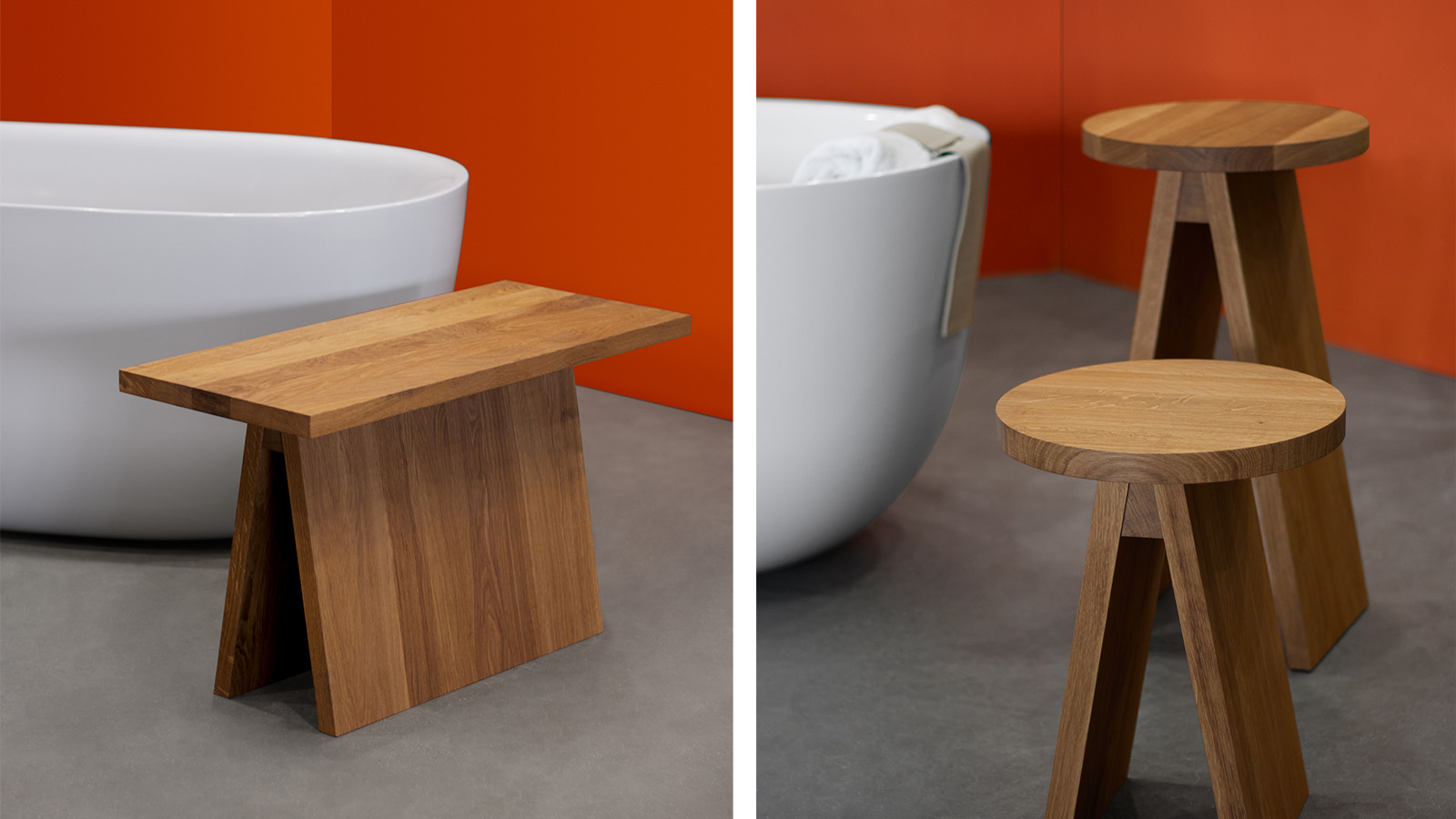
The e15-Kaldewei collection consists of a stool and bench, a footboard, a towel rail, and a bathtub bridge in European oak, but also a bag and a towel loop in water-repellent leather. ‘[They are] statement pieces that do not dominate the style of your bathroom, allowing your own personal touch,’ says Christian Büttner, Division Manager Innovation and Portfolio of Kaldewei.
The collaboration, according to Diez, Büttner, and Philipp Mainzer (founder and managing director of e15), is based on shared values and expertise: to illustrate this, Kaldewei decided to provide an exclusive close-up look at its manufacturing process - including the creation of the steel-enamel products. In a hot facility near the offices a furnace reaches sky-rocketing temperatures appropriate for melting raw materials such as oxide, borax, feldspar, and quartz, which have been used to make enamel for millennia. The brand developed its secret formula 100 years ago in Ahlen, Germany, where its headquarters remain to this day: Kaldewei is the only bathroom manufacturer worldwide that produces enamel in its own melting furnaces.
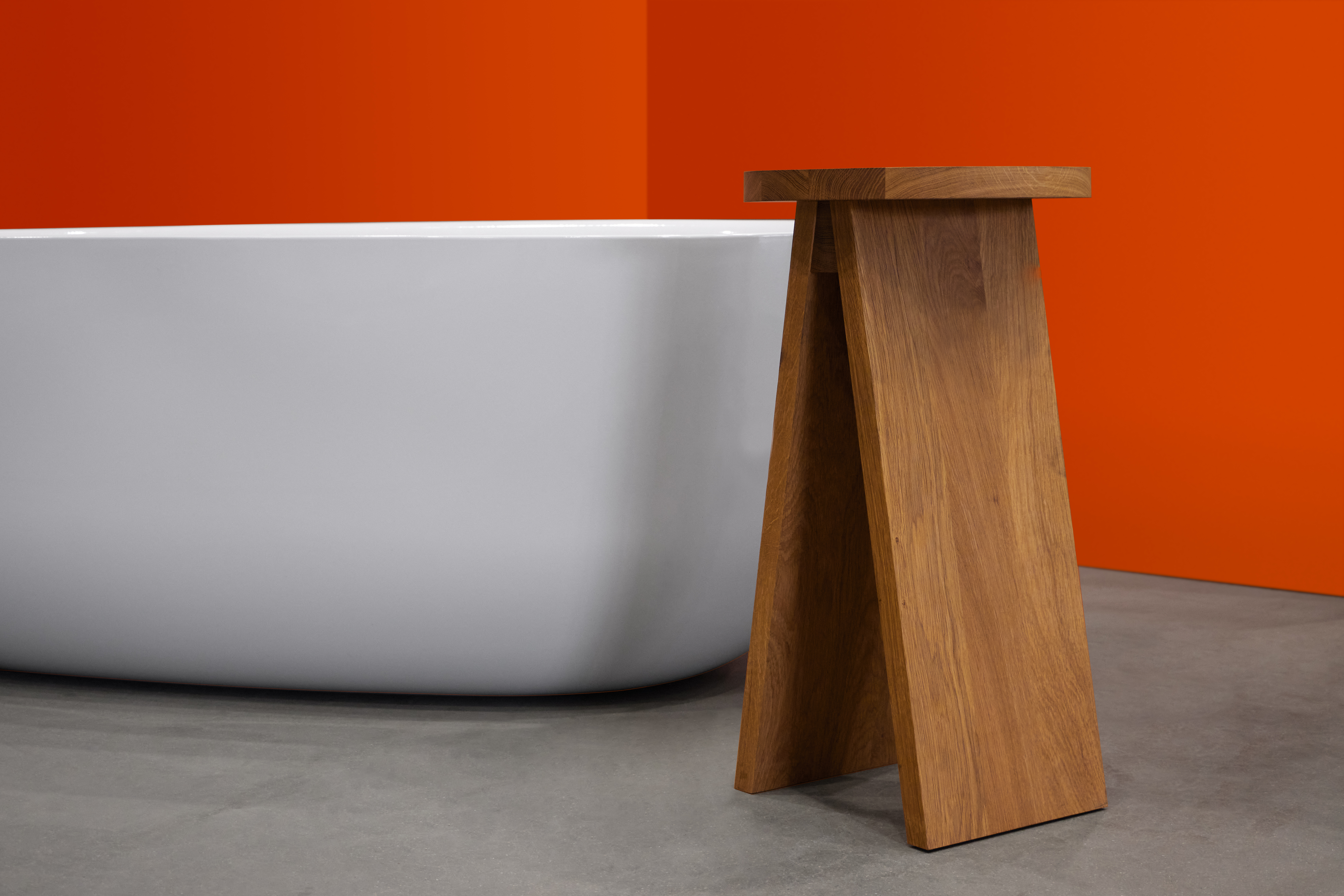
During the first part of the process, the red-hot enamel is cooled in water, to solidify before being broken into tiny granules called frits, and then processed into a sprayable slurry. In a second building, the scream of the steel bending takes precedence over the classic clang of a factory - it's the sound of a steel blank deep-drawn into a bathtub shape.
Cutting holes, laser drilling, enamelling in two coatings, the furnace (at 850° C), and, of course, a final and accurate inspection are among the many steps that follow. It's mostly a highly automated process, a ballet of articulated robotic arms that can grab, overturn, rotate, and envelop a tub with charming synchronicity. Only the inspection is carried out by specialised personnel, working in 20-minute shifts, as it requires not only a trained eye, but also one that is well rested, they explain.
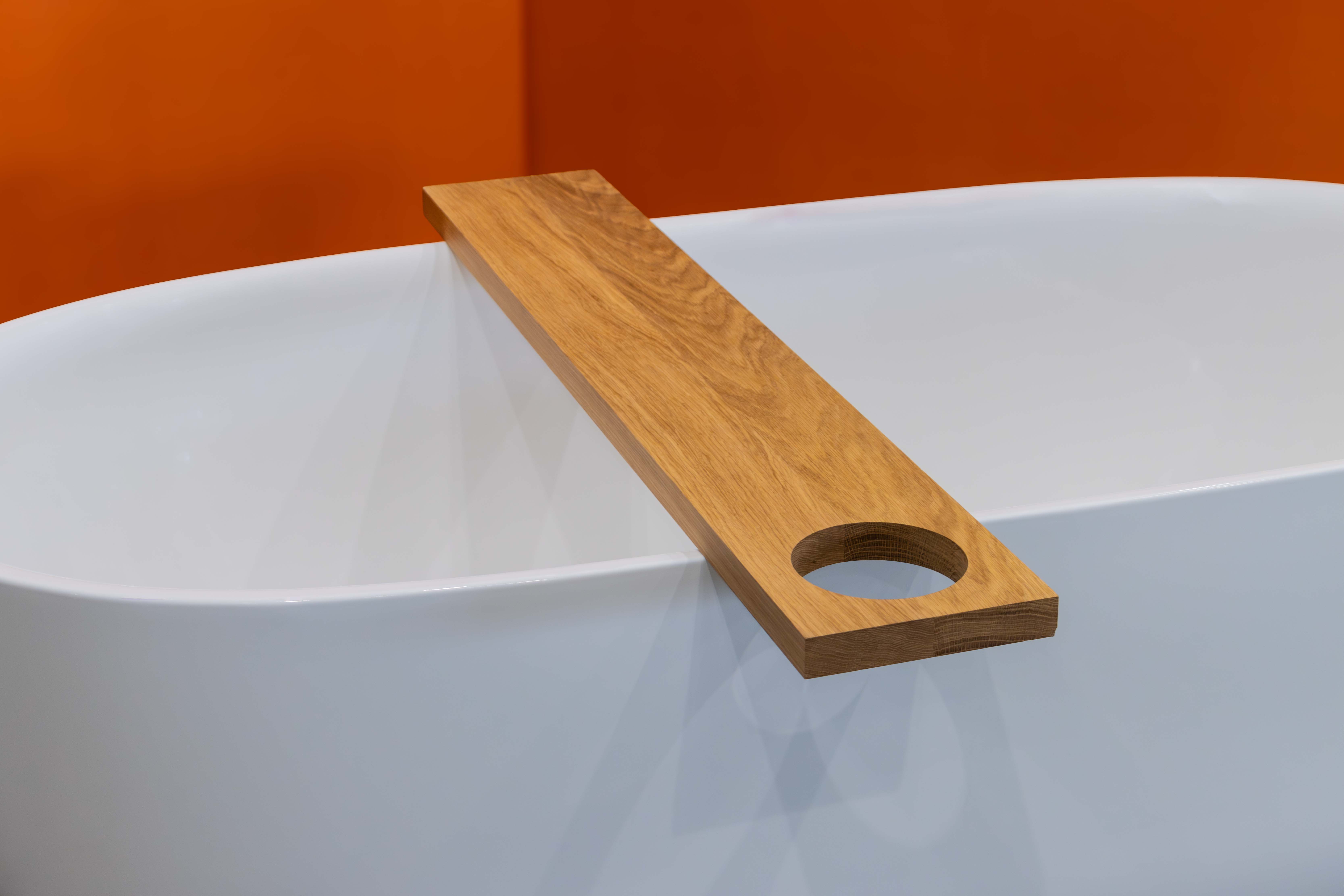
The apparent simplicity appears to be the common thread linking this production and the new collection. ‘To make a product really simple is the most difficult thing in the world,’ considers Diez, while showing the stools, in two heights, that rely on bold geometry, with angled legs meeting at the top.
A bathtub bridge features a circular hole for a towel (‘It's for when you're reading or listening to music and need to dry your hands,’ says Diez). In consideration of Kaldewei's enamelled steel pieces, it includes a hidden magnet to prevent it from slipping into the water: it has also been added to the pouch and the soft leather strap (which can be used to hold the towel as well as a cushion).
The towel rail and foot board complete the collection: the latter presents a substantial material thickness, underlines Mainzer. ‘Because the pieces are so simple, they must be perfect in terms of proportion in order to truly define their functionalities,’ he adds. ‘The wooden board has the potential to transform the entire space. Its construction allows it to remain elevated above the floor, so that the water can flow.’
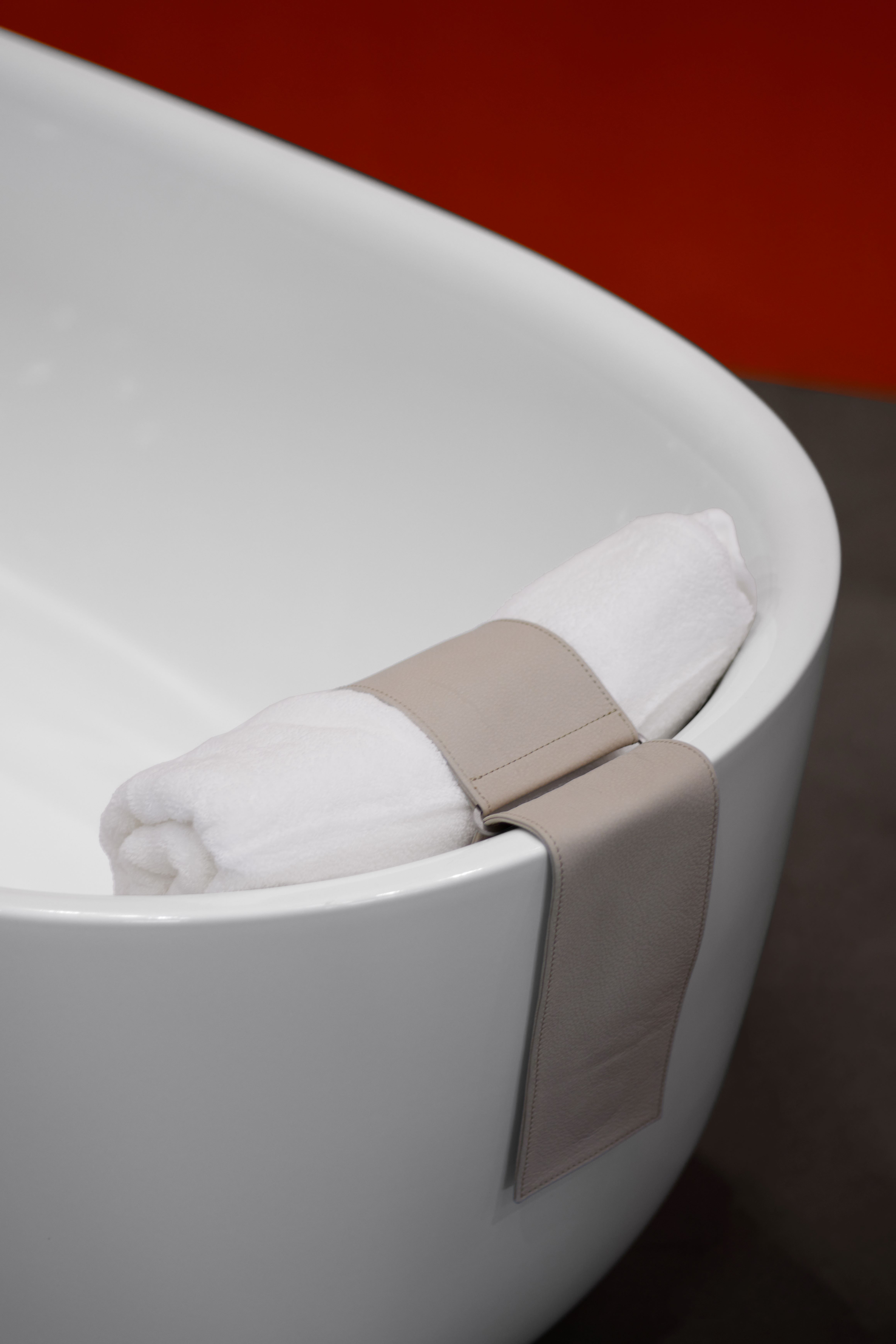
The pieces also perform well in terms of multifunctionality (‘The stools can go into either the kitchen or the bedroom,’ highlights Mainzer) and are designed to not only last, but also age well. ‘For me, the goal is now to develop more universal tools,’ says Diez. ‘Instead of selling a specific solution for every minor detail of our home, we should focus on carefully crafted products.’
The collection will be presented at Casa Flash, Via Durini 24, from 15 to 21 April 2024







